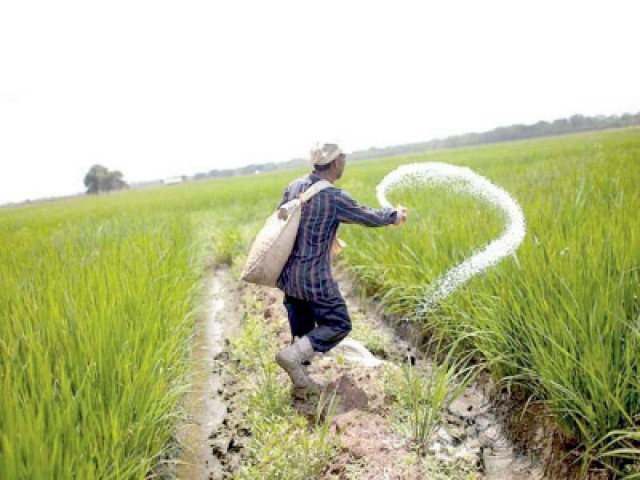Urea sales estimated to rise 21%
Demand grows despite frequent increases in fertiliser prices

Sales of urea, an important input for agricultural produce, are likely to have increased to around 590,000 tons in March 2024, said a research report released by JS Global on Monday.
If the numbers came in as expected, it will translate into a 21% increase on a year-on-year (YoY) basis, as total urea offtake was 489,000 tons in the same month of last year. On a month-on-month (MoM) basis, demand is likely to have risen by 9%, as urea sales were 543,000 tons in February 2024.
For di-ammonium phosphate (DAP), the research house predicted sales of around 119,000 tons in March, a whopping 132% YoY increase and a marginal 3% MoM rise. DAP sales were 115,000 tons in February.
Retail prices of these important agricultural inputs always remain in news as they have been surging rapidly over the past few years. Though successive governments have tried to provide fertiliser subsidy through different schemes, they failed to satisfy the farmers at large.
Now, it is widely expected that urea prices are going to rise further on the back of exorbitant energy tariffs, particularly gas prices. This has sparked widespread concern among farmers, particularly the 90% small farmers.
Following gas price revision for fertiliser plants, the industry will raise urea prices, dealing a blow to efforts aimed at achieving national food security.
According to farmer lobbies, the maximum retail price (MRP) of urea should not be more than Rs3,800 per 50kg bag. On the contrary, India is providing urea at an MRP of Rs900 per bag by providing $24 billion per annum in subsidy.
To avoid a huge increase in urea prices, alternative plans should be devised by the federal government instead of an abnormal gas tariff hike for the fertiliser industry.
The research house, however, said that fertiliser companies had strategically positioned themselves to manage the hike in input costs.
To recall, the sector had swiftly absorbed gas price increases multiple times last year. It is anticipated that in accordance with the IMF’s directive aimed at tackling the circular debt, regular increases in gas prices will now be a routine for the business landscape.
The research house expected that new gas rates would be applied to Mari-based plants as well. As a result, Engro Fertilisers will emerge as an eventual gainer, as compared to its peers, since more than 30% of the company’s gas mix has been under the Petroleum Policy 2012.
Published in The Express Tribune, April 16th, 2024.
Like Business on Facebook, follow @TribuneBiz on Twitter to stay informed and join in the conversation.




1733130350-0/Untitled-design-(76)1733130350-0-208x130.webp)













COMMENTS
Comments are moderated and generally will be posted if they are on-topic and not abusive.
For more information, please see our Comments FAQ